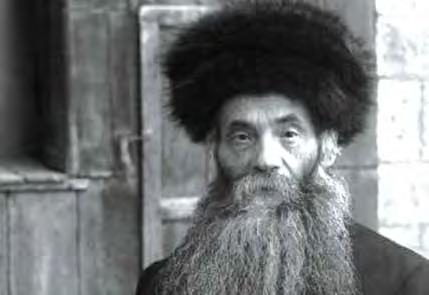60 64
JANUARY 28, 2021 | The Jewish Home OCTOBER 29, 2015 | The Jewish Home
From the Fire Parshas B’Shalach
The Redemption of Speech By Rav Moshe Weinberger Adapted for publication by Binyomin Wolf
M
an is defined as one who speaks. The Torah (Bereishis 2:7) describes Hashem’s creation of man as follows: “And He blew into his nostrils the breath of life and man became a living being.” In his Aramaic translation of “l’nefesh chaya, a living being,” Onkolus translates those words as “ruach m’malelah, a speaking being.” We therefore see that the power of speech defines man. Man’s speech and the essence of his life are one. Regarding the importance of listening to the Torah taught by one’s parents, the pasuk in Mishlei 4:22 says, “Ki chaim haeim l’motza’eihem, for they are life for those who find them.” The Gemara (Eruvin 54a) explains this pasuk as follows: “Do not read l’motza’eihem as ‘to those who find them’; rather read it as l’motza’eihem b’peh, ‘to those who pronounce them orally.’” We therefore see that true life and speech are intertwined. The living soul is expressed through speech. Likewise, one draws out the living soul from within himself by speaking. The Seforim Hakedoshim teach that, in Egypt, the power of speech was in exile. Even our redeemer’s speech was impaired. Moshe was described (Shmos 4:10) as “heavy of mouth and heavy of tongue,” and as (Shmos 6:12) an “arel sefasaim,” a person with “impaired speech.” Moshe also said about himself (Shmos 4:10), “I am not a man of words.” His power of speech was covered, concealed, and blocked. Indeed, the Jewish people were unable to hear Moshe’s words, as the pasuk (Shmos 6:9) says, “And they did not listen to Moshe because of their shortness of
breath and the hard work.” This is further reflected in Pharaoh’s name, which is a contraction of the words, “peh rah, evil mouth.” The Jewish people’s response to the suffering in Egypt was (Shmos 2:23), “And they cried out … and they groaned.” They were unable to daven to Hashem with words. The power of speech, when it is free, is expressed on a number of different levels, the highest of which is shira, song. It is the mouth’s highest mode of expression. Song is the greatest expression of man’s essence as a living being. When a person is filled with vitality, he cannot be satisfied with speaking alone. He must sing. That is why we say in the tefilla “Nishmas,” “Would that our mouths were filled with song like the sea and our tongues with exultation like its numerous waves...” Therefore, the yom tov which relates to the redemption from Egypt, from the exile of speech, is called Pesach, which is a contraction of the words “peh sach, speaking mouth.” When the redemption came, speech
was no longer in exile and our mouths were then able to speak. Our newly unleashed power of speech soon turned into song, as we say in davening, “A new song, praising redemption.” The Torah uses four words to describe the redemption (Shmos 6:6-7) which correspond to the four cups of wine we drink at the Seder. This relationship between wine and singing songs of praise for Hashem’s redemption is expressed by the halacha (Brachos 35a) that the Levi’im “only sing over the wine [of the libations].” With wine, a person’s innermost song is released, as the Gemara (Eruvin 65a) says, “When wine enters, the secret comes out.” In addition, an onen, one who has just lost a close family member, may not drink wine. The loss of a living soul renders him “songless.” Aharon Hakohen was silent when two of his sons died because silence surrounds the person facing death. As long as the Jewish people were still in Egypt, they were compared (see the sefer Arvei Nachal, parshas
Eikev) to “a fetus in its mother’s womb.” Regarding a fetus, Chazal say (Nida 30b) that “its mouth is closed.” Because it is not yet fully in the category of the living, it has no power of speech, but the final act which prepares it for birth is the angel’s strike on the mouth, which opens up its mouth (Ibid.). The redemption from Egypt and Song at the Sea represented the birth of the Jewish people and the redemption of speech. Regarding that time, when we transitioned from the world of the “dead” to the world of those who are truly living, Chazal say that the song we sang that day is reminiscent of the ultimate resurrection of the dead (Rashi on Shmos 15:1). The redemption from Egypt was also simultaneously a redemption of the power of speech and our birth as a nation. Not only did the Jewish people go from speechless to speaking, and then to singing, but even the babies in their mothers’ wombs sang the Song at the Sea in gratitude of Hashem’s redemption (Sota 30b). How does the song the Jewish people sang through prophecy connect to Tu B’Shvat, the Rosh Hashana for trees, when, in the dead of winter, Chazal teach (Rashi on Rosh Hashana 14a) that the trees’ sap begins to rise as they come to life again in preparation for spring? Rav Tzadok Hakohein of Lublin in Resisei Laila (34) explains that the word for prophet, “navi,” comes from the word niv, speaking, as in the pasuk (Yeshaya 57:19) “niv sefasaim, speech of the lips.” Rav Tzadok explains that the same root word also means “produce” or “fruit,” as in the phrase “tenuvas ha’aretz, the produce























